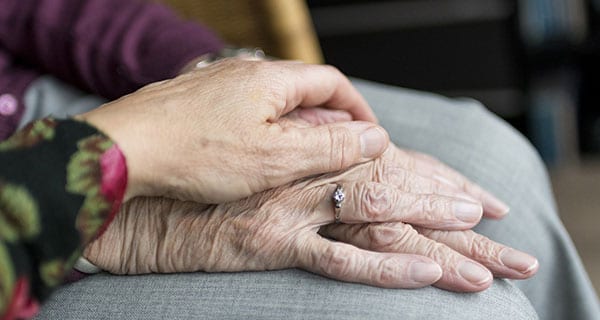By Paul Hébert
and George Heckman
Canadian Frailty Network
Are you or a loved one aging, perhaps with a chronic heart or lung condition that limits daily activities? Do you have an older parent in a nursing home or who needs assistance with daily living activities? If so, read on and make the pledge.

Paul Hébert
As physicians, we see death every day. And we see death made worse and more painful by poor advance care planning. Yet despite the certainty of death in all our futures, it’s astonishing how often families and loved ones have neither discussed nor planned for the inevitable.
Discussing death is difficult. But not having these crucial conversations is far worse.
Over 50 per cent of Canadians who die each year do so in hospitals. We no longer die quickly at home from acute illnesses like infections, but from chronic illnesses whose protracted courses often end in hospitals.
Death has been removed from daily life and is managed for us in sanitized institutional environments. Perhaps because death is less familiar, it’s easier to fear. It’s certainly much easier to ignore.

George Heckman
Consider older nursing home residents, most in their mid-80s, many of whom have some dementia, have daily pain, depressive symptoms and are affected by diabetes, heart and lung disease or stroke. “Frailty” is the term used to describe such persons, whose complex burden of age-associated conditions increases their risk of further decline. Their life expectancy is normally around 18 months – shorter still if they lose weight, need more assistance or become short of breath.
Because we don’t have crucial discussions, as many as 30 per cent of frail nursing home residents are admitted to an intensive care unit and 50 per cent to hospitals in their last month of life. Because we haven’t normalized difficult conversations around death, we will never know whether this is what they would have wished.
A key reason we don’t have these discussions is fear.
Fear of death, fear of the unknown, fear of dying in pain and alone. Fear of talking to doctors and nurses about death. Fear of being abandoned if they forego aggressive care options. Fear of dying in pain and alone in a community ill-equipped to address their needs.
Doctors and nurses are also afraid. They have limited training with difficult conversations. They fear the sense of defeat that comes from the feeling that they’re giving up on patients.
So this year, pledge to overcome your fear of death and have an end-of-life discussion with your frail loved ones, and with your doctors and nurses.
Reflect on what matters to you most, your values, your life goals and expectations, and anything else you feel is important. Ask yourself: how do your wishes align with the specific and best-practice care choices that you might have to make today or in the future? Know that you can seek help from your doctor or nurse, or use one of many available toolkits.
Once your wishes are clear, it’s critical that they be honoured. Write them down. Share them with your loved ones and powers of attorney. They need to know because they might have to speak on your behalf one day if you lose that ability.
Also share your wishes with your doctors and nurses.
And know that you’re allowed to change your wishes, especially as your health changes.
Our health-care system must pledge to overcome its inertia and engage decision-makers and community stakeholders to ensure that all Canadians have equitable access to quality services that support their wishes as they approach the end of life.
Failure to do so is a pledge to continue with 3 a.m. do-everything resuscitation attempts that prevent natural death. Many frail patients would never have asked for such care had that crucial discussion taken place.
Dr. Paul Hébert is a senior scientist at the Centre de recherche du Centre hospitalier de l’Université de Montreal (CRCHUM), and a full professor in the Department of Medicine of the Université de Montréal. He is also a researcher with Canadian Frailty Network. Dr. George Heckman is the Schlegel Research Chair in Geriatric Medicine and an associate professor at the University of Waterloo, and an assistant clinical professor of Medicine at McMaster University. He is an interRAI Fellow, a researcher with Canadian Frailty Network.
The views, opinions and positions expressed by columnists and contributors are the author’s alone. They do not inherently or expressly reflect the views, opinions and/or positions of our publication.

